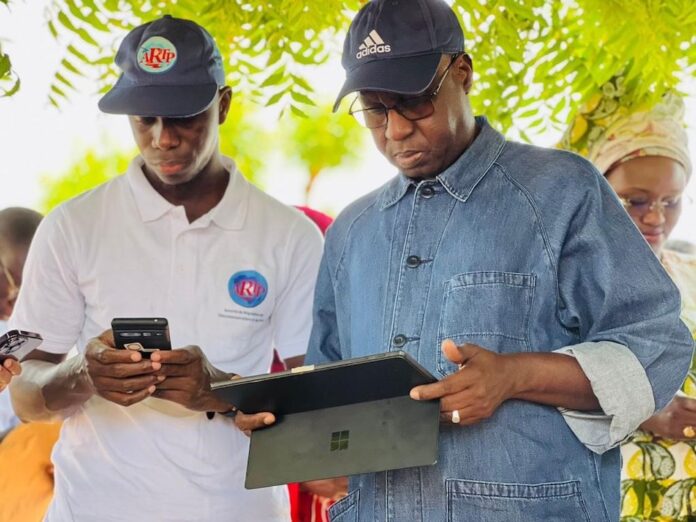The nation’s move may spark the interest of other regulators looking to boost rural coverage
Senegal’s Regulation L’Autorite de Regulation des Telecommunications et des Postes (ARTP) director general Abdou Karim Sall (above, right) said national roaming was now a reality in the country. The “effective changeover” now allows mobile network operators’ subscribers to use a competitor’s network to make and receive calls, text messages and access the internet.
Sall was accompanied by representatives of telephone operators Orange, Free and Expresso for the announcement, which followed verification tests on the effectiveness of switching in villages surrounding Touba, a town in the Diourbel region of central Senegal.
Tests will be carried in the northern (Matam) and southern (Ziguinchor) regions from next week.
He welcomed a “conclusive test” with calls and texts 100% successful, noting however that there are “fixes” to be made regarding the “switching of mobile data between certain operators”.
“National roaming is a regulatory lever that allows subscribers of an operator to use the network of another national operator to automatically make and receive calls, if they are in an area not covered by its operator,” he said, adding the move was a “major innovation” for mobile services.
Senegal’s push for national roaming was spurred by a request from President Macky Sall to prioritise moves towards nationwide mobile network coverage. The initiative is aimed at extending connectivity to underserved areas as well as enabling service continuity in the event of a network outage.
The national roaming project is part of the government’s efforts to deliver its Digital Senegal 2025 plan. Once implemented, the national roaming initiative allows subscribers to access services in regions where his/her service provider has no infrastructure. According to the latest ARTP figures, the mobile penetration rate is now 117.73% in Senegal, against 92.29% for internet penetration.
Ecofin reports that the initiative is expected to increase competition in the Senegalese telecom market by offering consumers a wider choice of network providers. According to statistics from Omdia, Orange Senegal had the highest number of subscribers at the end of the fourth quarter in 2022 with mover than 12 million.
The telco is followed by Free Senegal with more than 4.6 million subscribers as well as Expresso Senegal with 3.7 million subscribers. Making up the rest of the market is Promobile with 418,000 and Hayo Telecom with the least number of reported subscribers at just 228 during the same period.
In June the regulator called for applications for 5G licences. Only companies registered in Senegal and that have a licence to build and operate networks providing electronic communications services to the public could apply.
Roam freely but don’t use Starlink
ARTP announced separately that five Starlink service sellers had been arrested for marketing terminals allowing access to the company’s services, without the prior authorisation of the Senegalese authorities.
Offenders risk imprisonment for a period of 1-5 years, as well as a fine ranging from CFA30-60m, according to reports.



